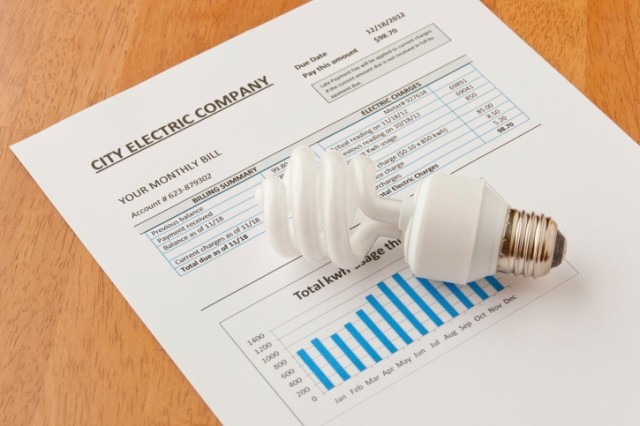Renting your very own apartment can be a liberating experience. It signifies newfound independence or an exciting, new chapter. However, sometimes you need a little assistance to make this big change in your life.
For a multitude of reasons, you may not qualify for your dream apartment (or even your plan B or C) by yourself. Luckily, cosigners can open doors (literally) for those previously denied residence. So don’t throw in the towel on your apartment renting endeavors just yet!
- What is a cosigner for an apartment?
- Guarantor vs. cosigner
- Why you might need a cosigner
- Who should you ask to cosign your apartment?
- Pros and cons of cosigners
What Is a Cosigner for an Apartment?

Cosigners sign the apartment lease with you, taking on the same financial responsibility as a tenant and then some. Simply put, they are extra insurance for your property manager to ensure sufficient payments are received one way or another. If rent is due monthly, either you, your cosigner, or a combination of both, are expected to cover it completely.
A cosigner’s name is on the lease; they have a legal right to your space, and a legal obligation to ensure the rent is paid in full. They can live in the apartment, but they don’t have to.
Guarantor vs. Cosigner
Both the cosigner and guarantor are held responsible if nobody shells out the rent. Guarantors serve the same purpose as cosigners as they aim to shoulder some of the tenant’s financial burden.
However, cosigners enjoy rights and roommate privileges that guarantors do not have. Guarantors cannot live in the rental, and they are only contacted once you’ve missed a payment and breached your leasing agreement.
Why You Might Need a Cosigner
There are many reasons why you might need a cosigner:
- Insufficient income
- Low credit score
- Lack of steady income/employment
- No rental history
- Record of past evictions
- Desire for apartment with strict requirements
Before starting your apartment search, consider if you fit any of these criteria. If so, it might be good to start thinking about who you can ask to be a cosigner.
Who Should You Ask to Cosign Your Apartment?

Your best chance at nailing down a solid cosigner is to pick someone who has a strong financial base, a reliable source of income or job, and is willing to take on the responsibility. This could be anyone, from a relative to a friend.
More likely than not, this person will have to complete the same thorough background check as you (which will include a credit check). Ensure your cosigner-to-be boasts a solid credit history, admirable financial record, and good rental history. If not, it could be back to the drawing board.
Common Cosigner Requirements
Not everyone is allowed to be a cosigner; landlords set requirements to ensure that the cosigner is a reliable financial safety net. Check with your landlord about what requirements they want for a cosigner as it can vary. Common cosigner requirements include:
- At least 18, though some landlords stipulate they must be 21 or older
- Strong credit history and good credit score (often 680–700+)
- Proof of income/employment, usually with an income that meets a set multiple of the rent (like three or four times the rent)
- Clean rental history
How to ask someone to be a cosigner for you
Before you approach someone to ask them to be a cosigner, make sure you are comfortable being upfront and transparent with them. You will need to explain to them your situation and why you need a cosigner. Follow these steps to respectfully ask someone to be a cosigner:
- Explain the reason you need a cosigner. This requires you to be transparent, whether it’s because you have no rental history or a bad credit score.
- Discuss what being a cosigner entails and their responsibilities. Make sure the financial and legal responsibilities they would be assuming are clear.
- Detail your plan. No cosigner wants to be held responsible for missed payments, so reassure them by explaining your plan to pay rent.
- Give them time to think about it. Deciding to be a cosigner is no easy choice, so give them plenty of space and time to think through it. Figure out if you’re likely to need a cosigner and then ask them as soon as possible instead of waiting until the last minute.
Pros and Cons of Cosigners

A cosigner can be a powerful backer when you’re apartment hunting. This additional support can help you in many ways from improving your application to reassuring landlords. There are advantages and disadvantages to having a cosigner, and knowing both will help you make an informed decision.
Pros of cosigners
Cosigners are a must-have in certain situations, but there are advantages to having a cosigner.
Better approval chances
Regardless of the reasons the landlord might refuse you, cosigners help cover where you don’t meet requirements and improve your chances to be approved. Whether you’re a first-time renter or someone with a poor credit score or no scores, cosigners can help you get an apartment.
Those with an eviction history can be approved
If you’ve ever received an eviction notice, a history of eviction may be stamped on your public record. But don’t panic! Whether this eviction was due to lease violations, failure to pay, or some other reason, your chances of securing an apartment increase if you have a cosigner backing you up.
It’s important to be transparent with your cosigner since they’re putting themselves and their wallet on the line for you. It’s wise to disclose things like past evictions, debts, late payments, or any other information they may want to know. This way the cosigner can make an educated decision before signing on the dotted line.
Wider selection of apartments
Having a cosigner can significantly widen the range of apartments available to you. Landlords are more willing to approve your application even if you don’t meet every requirement if you have a cosigner. This can open the door to higher-end apartments, different neighborhoods, and more.
Lower rent or security deposit payments
Landlords might charge a higher rent or security deposit if you don’t meet requirements or barely meet them. Having a cosigner provides a protective measure that reassures landlords, so they are willing to be more flexible on prices.
Cons of Cosigners
After reading all the advantages of a cosigner, you may be wondering why anyone wouldn’t want to have a cosigner. There are some risks that come with a cosigner that you need to be aware of when deciding if you want one and who to choose.
It can strain or damage relationships
Cosigners are often people in your life that you respect or care about, like a parent or close friend. If you can’t come up with the money for rent or cover the costs of damage, it’s going to be denting your cosigner’s pocket. If they refuse to pay, you could both have an eviction. If rent remains unpaid, your cosigner’s credit can take a hit as well.
All this being said, your cosigner’s commitment is no joke. If you impose financial inconveniences on a cosigner (albeit inconveniences they legally agreed to account for), then your relationship could become strained or damaged. This is an important risk to consider when you’re choosing who to ask.
Property managers have the right to choose tenants who do not need a cosigner
Although having a cosigner increases the odds of securing your dream place, it doesn’t guarantee it. Although many landlords are perfectly comfortable with a solid tenant-cosigner duo, some prefer to avoid the situation altogether. If the landlord feels it's what's best for their rental, they are within their rights to deny your application as long as they are following fair housing laws.
Find a Private Landlord on Apartments.com
Sometimes, private landlords are more willing to negotiate and be flexible when it comes to their requirements. If you’re interested in finding a private landlord, search on Apartments.com.
At the bottom of the filters pop-up menu is a checkbox where you can select “Properties that are for rent by owner.” Selecting this will narrow your search to only listings from independent landlords.
This article was originally published on September 8, 2021.
FAQs
What are some alternatives to getting a cosigner?
If you don’t want to get a cosigner, there are alternatives:
- Put down a larger security deposit
- Get a roommate
- Rent from a private landlord
- Show additional documentation
What if I don’t know anyone who is willing to be a cosigner?
A cosigner service is a company that acts as a guarantor for someone who can’t meet a landlord’s credit or income requirements to help them get approved. Instead of relying on a friend or family member, you pay the cosigner service a fee (often a percentage of annual rent or a set premium) in exchange for their promise to cover missed payments if you default.
While this can make securing housing or credit easier and faster, it’s costly, non-refundable, and you’re still responsible for repaying the service if they cover your debt or missed payments.






